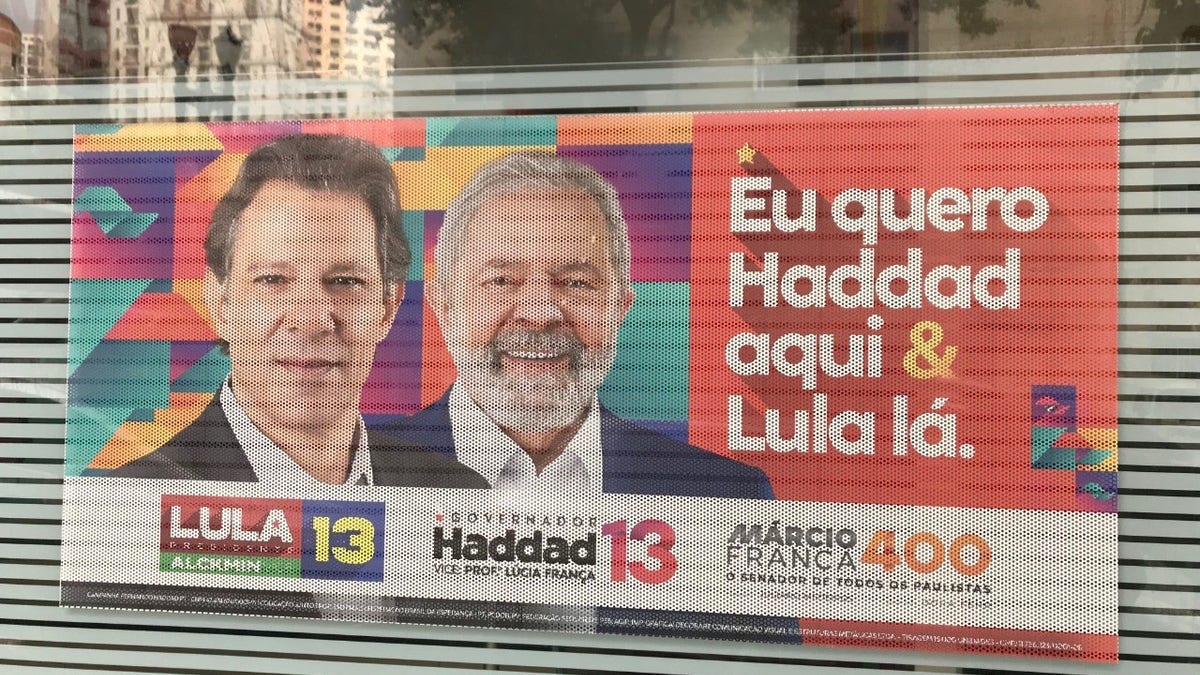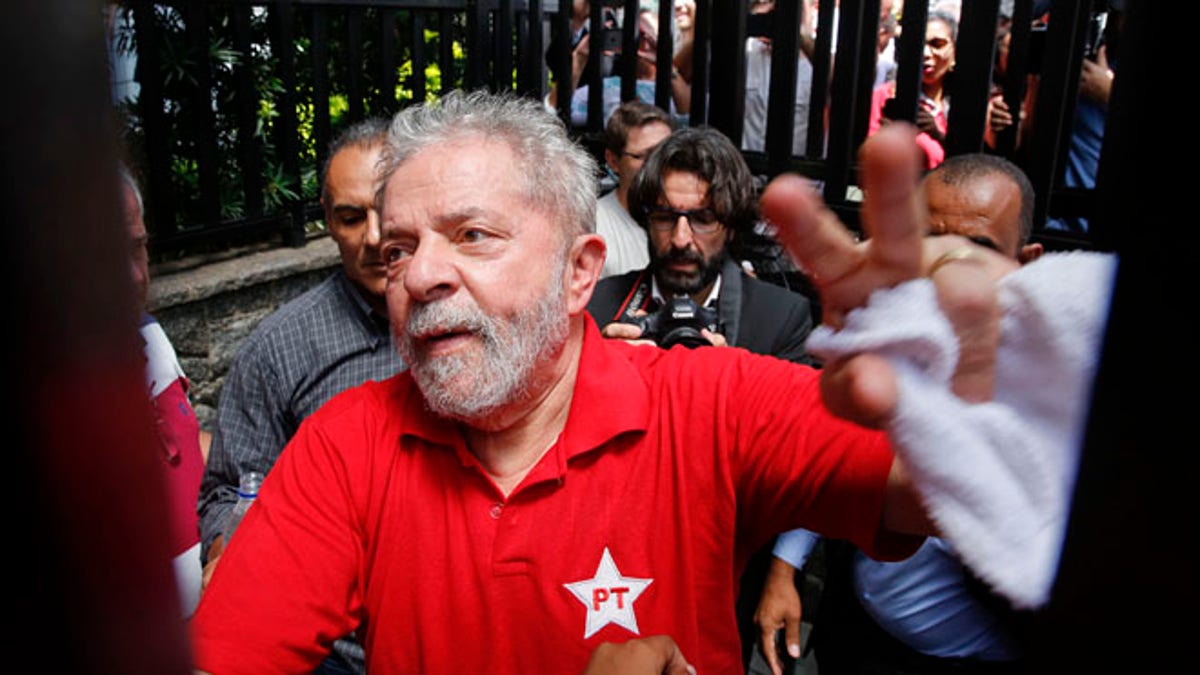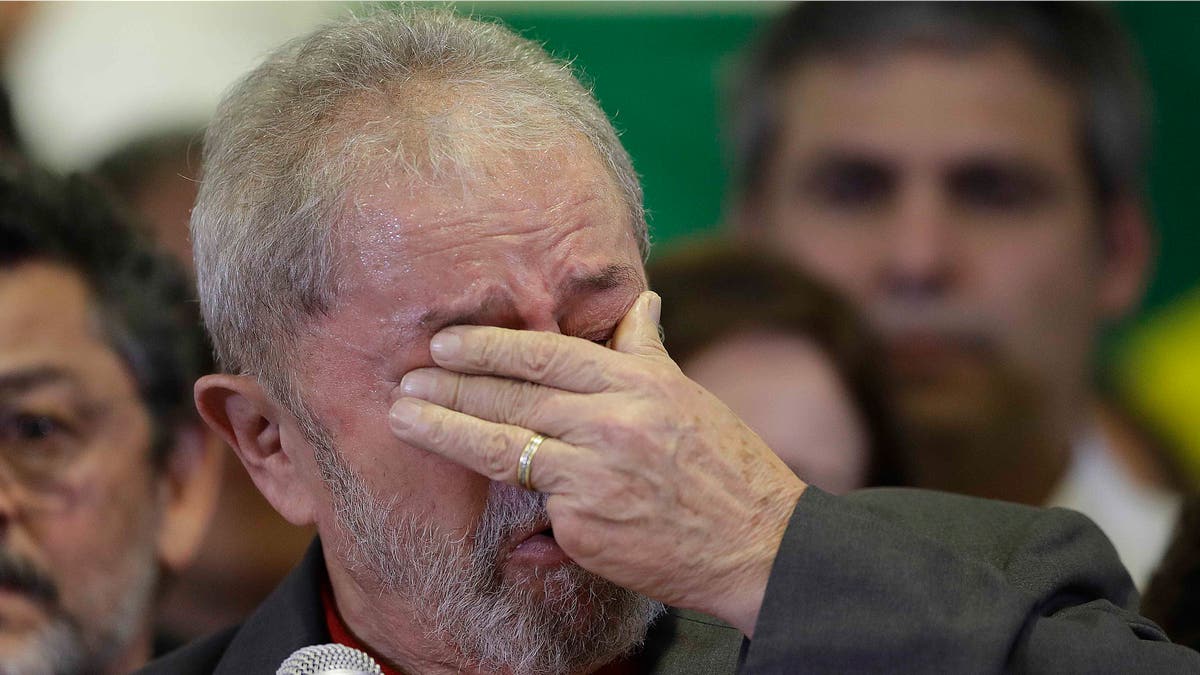Eduardo Bolsonaro: Increasing gun access has reduced violence in Brazil
Tucker Carlson interviews Eduardo Bolsonaro, adviser to his father, President Jair Bolsonaro, about Brazil's gun policies on 'Tucker Carlson Tonight.'
BRASILIA, Brazil — Despite Brazil’s pollsters largely predicting a first-round victory for former President Luiz Inácio Lula da Silva, incumbent President Jair Bolsonaro fared much better than expected, forcing his leftist opponent into a runoff election at the end of the month.
Yet, for many international observers, it may seem curious that Lula is even in the running, considering his recent conviction for corruption.
"I expected the corruption charges [against Lula] to play a bigger role than they did. But they certainly had some weight with the electorate," Tiago Cortez, a political adviser for Brazil's Republican Party, told Fox News Digital.
Cortez also made the point that Lula is very popular in elite circles: "Lula is greatly favored by the media, the artistic class and part of the business community, which spent a decade getting favorable treatment through the National Development Bank. These are sectors that end up making a great financial and media contribution" to his campaign.
The charges against Lula and the Workers Party stem from a pervasive influence peddling and kickback scheme perpetrated by the enormous Brazilian construction company, Odebrecht, which has been accused of lavishing campaign funds on political parties across Latin America in exchange for lucrative construction and infrastructure contracts.

Campaign poster for presidential candidate Lula da Silva in Sao Paulo, Brazil. (David Unsworth for Fox News Digital)
Marcelo Odebrecht alleged that Lula had lobbied foreign governments on the company’s behalf in exchange for bribes; the company is alleged to have distributed more than $230 million in bribes to politicians throughout the region.
Following the initial Odebrecht investigation, Brazilian police began investigating Lula and the Workers Party in relation to a similar scheme involving state oil company Petrobras, alleging that the company had funded Lula’s campaign in exchange for favorable treatment.
Investigators uncovered a massive scheme in which money flowed into the Workers Party coffers from some of the country’s largest companies via kickbacks and bribery. Joao Vaccari Neto, Workers Party treasurer, was charged with bribery and money laundering and sentenced to 15 years in prison.
As the investigation closed in on Lula and close associates, President Dilma Rousseff (who succeeded Lula as president) appointed him as her chief of staff in an attempt to shield him from prosecution, as certain government employees enjoy limited immunity from prosecution under Brazilian law. Ultimately, his appointment to the position was rejected by a Brazilian judge, who deemed it a thinly veiled attempt to avoid prosecution.
A LEFTIST VICTORY IN BRAZIL'S ELECTION COULD BE THE LIFELINE CUBA, VENEZUELA NEED RIGHT NOW
In September of 2016, the ball dropped, as Lula stood accused of heading the entire scheme and faced indictment on corruption charges in Curitiba, Parana, under the auspices of Judge Sergio Moro.

FILE - In this March 5, 2016 file photo, Brazil's former President Luiz Inacio Lula da Silva greets supporters who gathered outside his residence in Sao Bernardo do Campo, in the greater Sao Paulo area, Brazil. A Brazilian judge has ruled that Silva will stand trial on charges of money laundering and corruption. Judge Sergio Moro said Tuesday, Sept. 20, 2016 there is enough evidence to start a judicial process against Silva, his wife and six others in a widening corruption probe centered on the country's huge state-run oil company, Petrobras. (AP Photo/Andre Penner, File) (Copyright 2016 The Associated Press. All rights reserved.)
The subsequent trial polarized Brazil upon political lines, as Lula and Rousseff called upon supporters to take to the streets to protest what they viewed as politically motivated persecution.
At one time, Lula faced as many as nine separate criminal prosecutions, but he was ultimately convicted and sentenced on charges of corruption and money laundering relating to $1.2 million in renovations on his beachfront apartment by the Grupo OAS construction company, which in turn was said to have received large contracts from Petrobras orchestrated by Lula.
The case ultimately went to Brazil’s Supreme Federal Court, which in a narrow 6-5 decision upheld his conviction and ordered him to begin serving his sentence.
Lula’s incarceration sparked a massive "Lula Livre" or Free Lula campaign and led to investigation into Judge Moro’s tactics.
Ultimately, Lula was never found innocent on the charges of corruption. His conviction was overturned by the Supreme Federal Court on two technicalities: first alleging that Judge Moro had acted improperly by communicating with the prosecution during Lula’s trial, and second alleging that Moro lacked legal standing to try Lula in Curitiba, as Lula was residing in Brasilia at the time.
On April 15, 2021, the Supreme Federal Court, in an 8-3 ruling, upheld an earlier ruling annulling his convictions based on this reasoning. Lula only served 580 days of his 12-year sentence.
BRAZIL'S BOLSONARO LOCKED IN TOUGH RE-ELECTION BID WITH LEFTIST CANDIDATE LULA LEADING IN POLLS

Lula da Silva weeps during a news conference on the corruption charges he faced that ultimately landed him in jail. (2016 The Associated Press. All rights reserved.)
The Bolsonaro camp argues that the Supreme Federal Court is biased as the overwhelming majority of its 11 justices were appointed by Workers Party presidential administrations.
While Workers Party activists may believe in Lula’s innocence, few Brazilians appear to believe that Lula did no wrong. Nonetheless, nearly half voted for him on Sunday, and Lula remains the likely favorite heading into the runoff at the end of the month.
Brazilians appear to largely believe that all politicians are corrupt. Lula’s larger-than-life personality seems to have been confirmed by the fashion in which he greatly outperformed his slate of congressional and gubernatorial candidates.
Political analyst Flavio Morgenstern told Fox News Digital why Lula remains popular with the electorate: "Lula has a very strong ideological appeal in a country contaminated by socialist ideas," adding, "He is the only character with charisma on the left due to his already mythical past."
CLICK HERE TO GET THE FOX NEWS APP
Morgenstern also said Lula, despite his background, will still have a working relationship with the U.S., "With Biden, Lula would have an ally with some tension … his interest [in the U.S.] has always been purely economic," but "Lula’s friends are enemies of even the American left … the communist dictatorships of Latin America, China, Russia, the Palestinian Authority."
Yet the 76-year-old Lula was still the leading vote getter during Sunday's first round of voting as he goes into the runoff as favorite against President Bolsonaro. This even as many Brazilians voted for center-right or right-wing congressional and gubernatorial candidates but still swung left in the presidential election for him.








































